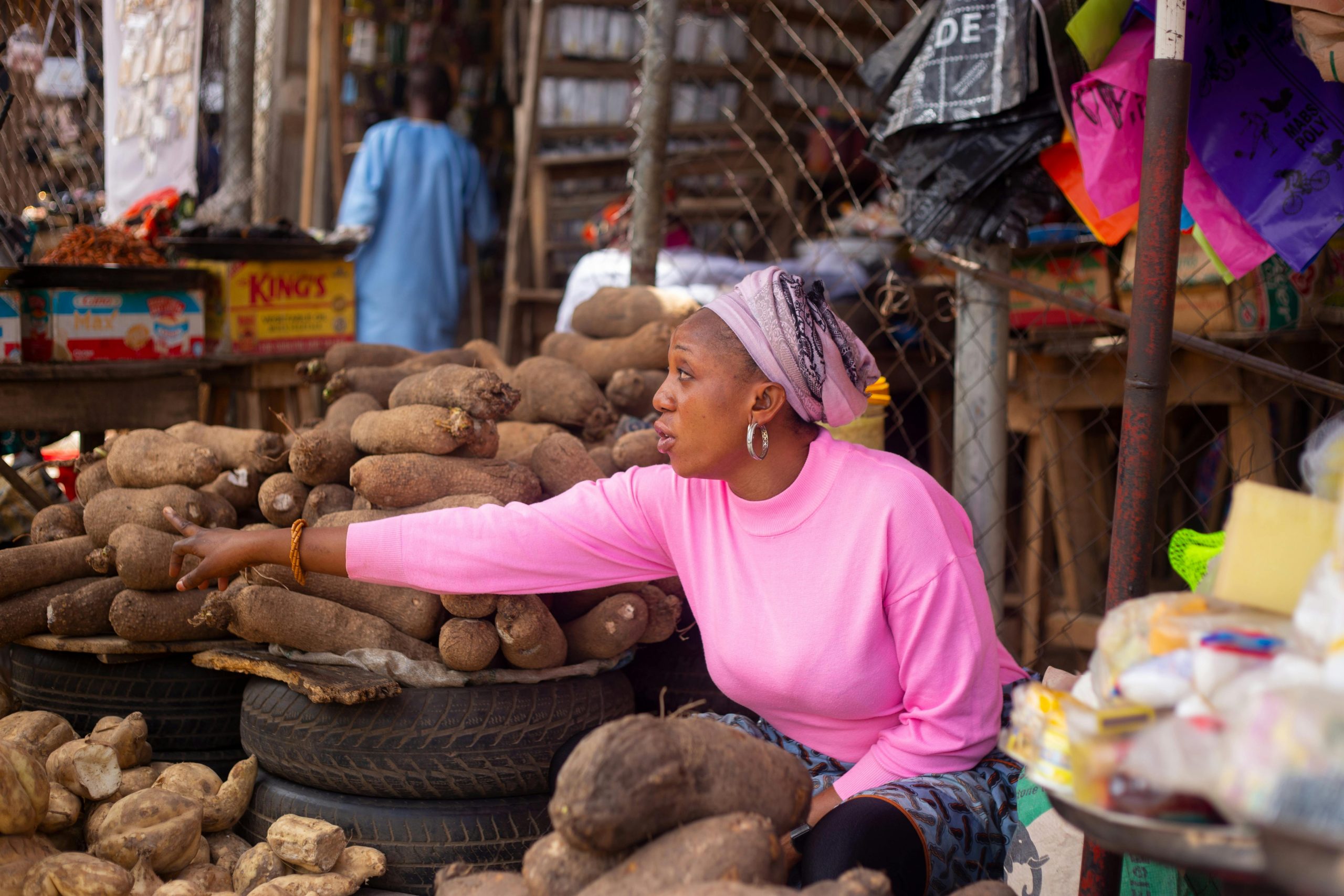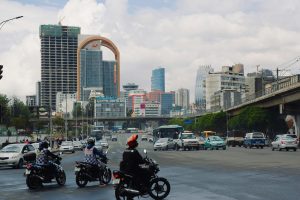Written By: Nathan Bako
It is ironic that Nigeria continually battles the challenge of ensuring food security for its fast-growing population, despite being the largest importer of food in Africa and ranked among the top producers of numerous agricultural products globally. The Food and Agricultural Organization (FAO) of the United Nations (UN) describes food security as “a situation that exists when all people, at all times, have physical, social, and economic access to sufficient, safe, and nutritious food to meet their dietary needs and food preferences for an active and healthy life”. Beyond identifying the critical elements relevant to creating and sustaining food security, this description also outlines the characteristics of food insecurity within a population.
While food insecurity in Nigeria has been attributed to several interlinked factors such as conflict, migration, and insurgency, studies suggest a complex connection to the climate crisis, manifesting as extreme weather events. Although various measures have been deployed to address food insecurity exacerbated by extreme weather events, more opportunities exist beyond Nigeria’s borders to tackle this challenge. Accordingly, this composition explores the complex interplay between extreme weather events and food insecurity in Nigeria, spotlighting the potential of trade to unlock a more sustainable food future.
The Nexus Between Extreme Weather Events and Food Insecurity in Nigeria
The increased frequency of extreme weather events such as floods, heatwaves, windstorms, and droughts in Nigeria has played a central role in reducing food availability, impeding access, compromising utilization, and ultimately disrupting the stability of the nation’s food system. This impact is most visible across the northern part of the country, where a large majority of the population heavily relies on agriculture and livestock for their livelihoods. These outcomes translate into difficulties for millions of people in consistently accessing affordable and nutritious food in sufficient quantities.
Impact on Availability of Food
Food security begins with ensuring that food is available in sufficient quantities. This can be achieved through production, importation, or redistribution. However, despite being a major food producer and importer, Nigeria faces a significant food availability challenge. Among other factors, erratic weather patterns resulting in droughts, excess rainfall, and rising temperatures have directly impacted agricultural productivity. Notably, temperature increases, manifesting as extreme heatwaves, are associated with heat stress in crops and have been reported to significantly reduce agricultural production. For instance, floods in Jigawa, Bauchi, and Niger states have washed away large areas of cultivated land, resulting in little or no yield in extreme cases. As a result, reduced availability negatively impacts both physical and economic access to food.
Limited Access
Improving access to food ensures that more people can physically reach locations where food is available (physical access) and can also afford it (economic access). Physical access is often hindered by the destruction of infrastructure such as markets, roads, bridges, and storage facilities due to floods and windstorms. These disruptions impede the movement of food from areas of higher agricultural productivity to those with less. This was evident from the recent destruction of a bridge on the Kano-Maiduguri federal highway, which disrupted the exchange of grains and other processed food products across northern Nigeria. Economically, supply chain disruptions, worsened by extreme weather events, create food shortages. Over time, such shortages drive food price inflation, making food expensive and harder to afford. Ultimately, access affects how food is utilized and the nutrition that can be obtained from it.
Poor Utilization
Beyond ensuring food availability and improving access, appropriate storage, processing, and preparation are necessary to maximize the nutritional benefits of consumption. Extreme weather events, such as floods, exacerbate environmental health challenges by contaminating water used in food preparation, damaging storage facilities, and reducing the shelf life of processed foods due to heat and humidity. As a result, food wastage is a key outcome of extreme weather events within Nigeria’s food system. Despite low availability and reduced access, Nigeria reportedly “loses and wastes” up to 40% of its total food produce.
Impact on Food System Stability
As one of the most disaster-prone countries in Africa, Nigeria’s vulnerability to extreme weather events ultimately destabilizes the nation’s food system. In other words, by weakening food availability, access, and utilization in ways that are interlinked and mutually reinforcing, the stability of the system is undermined, thereby threatening long-term food security. This has resulted in exponential increases in cases of acute malnutrition among children and adults across the country.
Trade to the Rescue
Over time, the relationship between trade and climate change has evolved through various perspectives. Initially, environmental concerns were seen as barriers to free trade, followed by questions about trade’s potential harm to the environment. More recently, there is recognition of a two-way relationship between trade and the environment.
Beyond the mere exchange of goods and services between countries, trade and trade policy hold transformative potential to strengthen food systems and ensure food security.
Ensuring Food Availability
As a mitigation strategy, trade can enable the importation of food to supplement local production, ensuring that food is available in sufficient quantities. Adaptation can also be enhanced through treaties that facilitate the transfer of climate-resilient agricultural methods and improved plant varieties, such as drought-resistant upland rice or deep-water rice varieties suited for flood conditions.
Improving Access to Food
To address limited access and supply chain disruptions, reducing or eliminating tariffs on food and food products can increase availability through imports, close supply gaps, and lower food prices, making it more accessible and affordable.
Maximizing Food Utilization
Trade can improve food storage, handling techniques, and post-harvest processing through advanced, innovative, and sustainable practices. Trade agreements that simplify the trade of perishable surpluses and improve logistics can encourage investments in storage and transportation infrastructure, reducing food wastage.
Strengthening Food System Stability
Trade can strengthen supply chains, minimizing issues related to availability and access. Technical exchanges through treaties can reduce the vulnerability of food systems to extreme weather events by providing real-time data, early warning systems, and sustainable solutions. Initiatives like the AfCFTA offer opportunities for deploying innovative strategies to mitigate and adapt to climate-related food challenges.
Conclusion
In conclusion, Nigeria’s battle against food insecurity, worsened by extreme weather events, cannot be won in isolation. Collaborative efforts that integrate internal and external solutions through the transformative power of trade must be galvanized to strengthen the stability of the nation’s food system. By leveraging trade, trade agreements, technological transfers, and collaborative strategies, Nigeria can mitigate the impacts of extreme weather on its food system, enhance resilience, and ensure a more food-secure future. Now more than ever, it is imperative for Nigeria to harness the power of trade and unlock a sustainable food future for its growing population.



